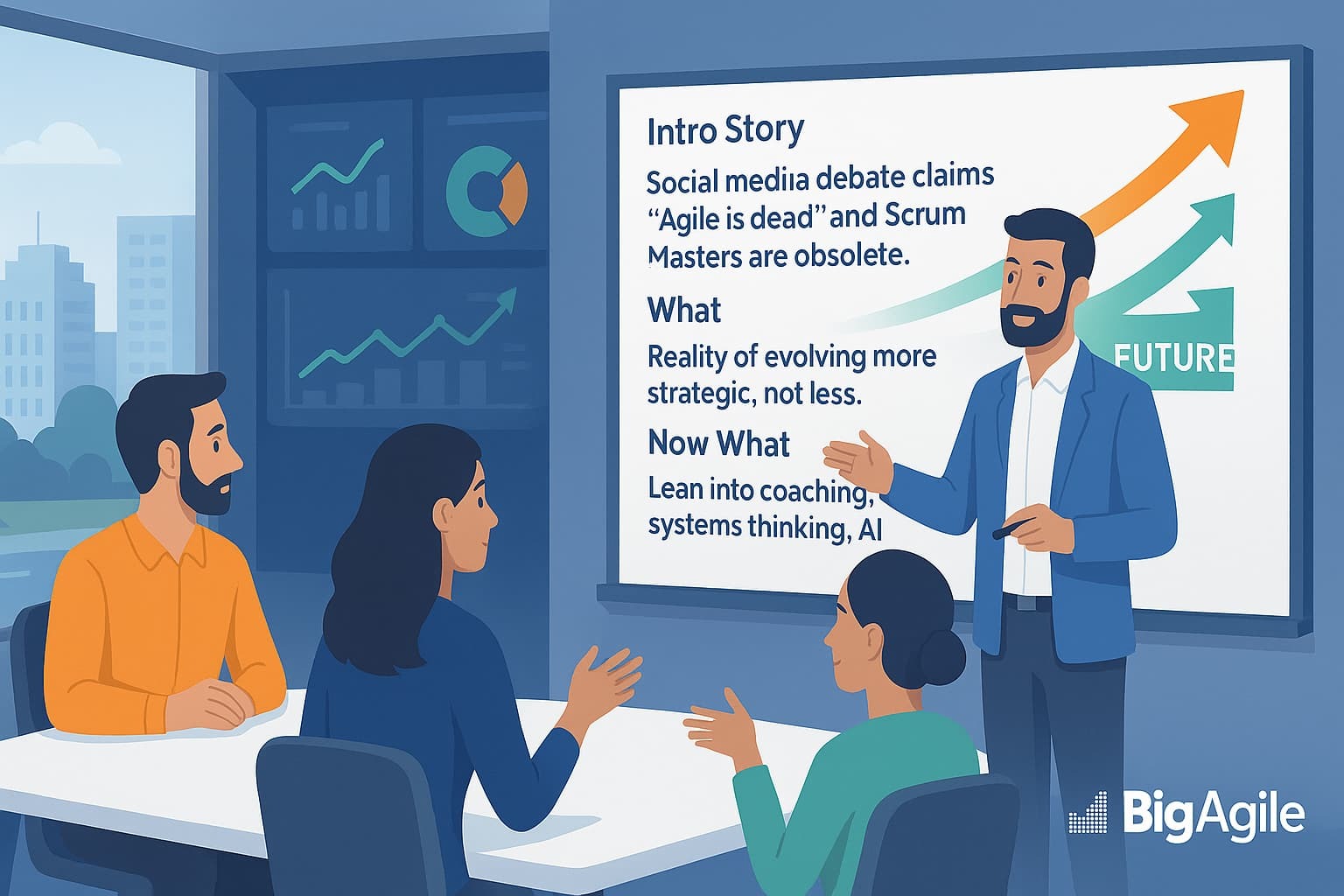
Scroll through LinkedIn or Twitter and you’ll see the headlines: “Agile is dead” or “Scrum Masters are obsolete".
The debate rages with skeptics pointing to failed transformations, rigid processes, or teams that dropped their Scrum Masters without missing a beat. To the casual observer, the role seems outdated, a relic of early Agile enthusiasm. But scratch beneath the surface, and a different story emerges: in organizations that are truly adapting to today’s complexity, Scrum Masters are not fading. They are evolving into some of the most strategic catalysts for change.
What.
The reality is that demands on Scrum Masters are shifting. The basics, facilitating Scrum events, protecting focus, and coaching in Agile principles, are still necessary, but they are no longer sufficient. Today’s Scrum Master is expected to navigate hybrid work environments, coach leaders as well as teams, and bring systems thinking to thorny organizational problems (well, they were always meant to do those things).
In an era of AI, automation, and relentless complexity, Scrum Masters must also learn new literacies: how to help teams integrate AI responsibly into workflows, how to interpret data without mistaking vanity metrics for progress, and how to foster resilience in the face of constant change. As Gary Hamel argues in Humanocracy, the organizations that thrive are those that dismantle bureaucracy and empower teams, a vision Scrum Masters are uniquely positioned to enable.
So What.
Why does this matter? Because dismissing the Scrum Master role as obsolete risks stripping organizations of one of their few dedicated roles for coaching agility. Other frameworks don’t build in this safeguard. As skepticism grows, the risk is that leaders conflate weak implementations with the irrelevance of the role itself. But when practiced well, Scrum Masters are not enforcing process; they are enabling adaptability, collaboration, and flow across the enterprise.
Future-facing Scrum Masters will be judged not on how well they “run Scrum by the book,” but on how well they create environments where teams and leaders can thrive in complexity. This evolution raises the bar, but it also makes the role more vital than ever.
Now What.
For Scrum Masters, this means leaning into growth areas:
Coaching beyond the team: Partner with leaders to extend agility into portfolio management and organizational design.
Systems thinking: Look beyond ceremonies to address structural bottlenecks, dependencies, and cultural barriers.
AI literacy: Understand how AI can augment forecasting, flow management, and backlog refinement, and help teams adopt it responsibly.
The future Scrum Master is a hybrid of coach, systems thinker, and catalyst for learning (well, they were always meant to be this).
Let's Do This!
Scrum Masters are not going away. They are transforming. As rituals alone lose their power, it’s the deeper skills, coaching, systems thinking, leadership agility, and responsible AI integration, that will define the role’s future. The Scrum Master of tomorrow is not a facilitator of meetings, but a catalyst of outcomes.
And in a world of accelerating change, that role has never been more important.